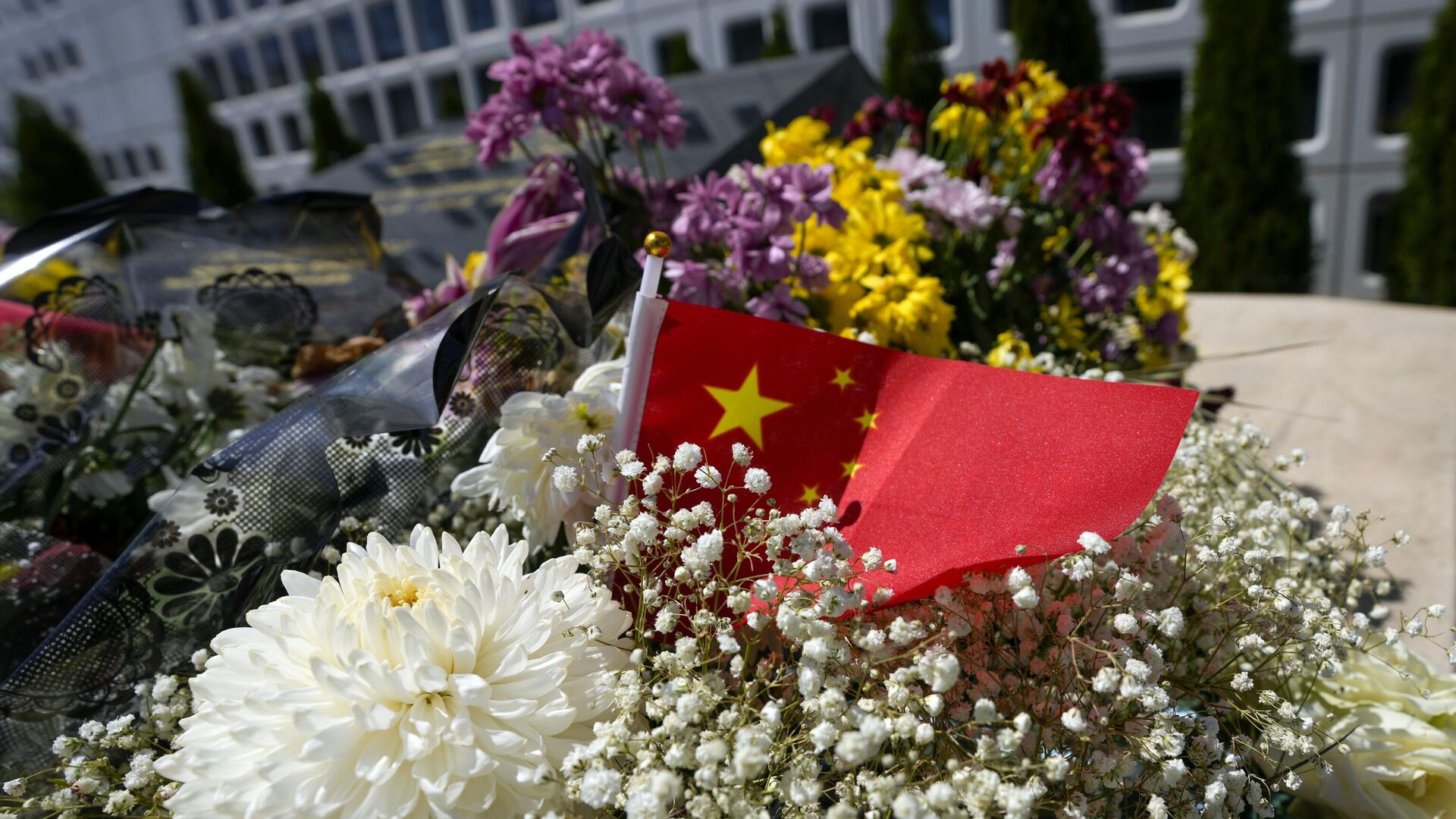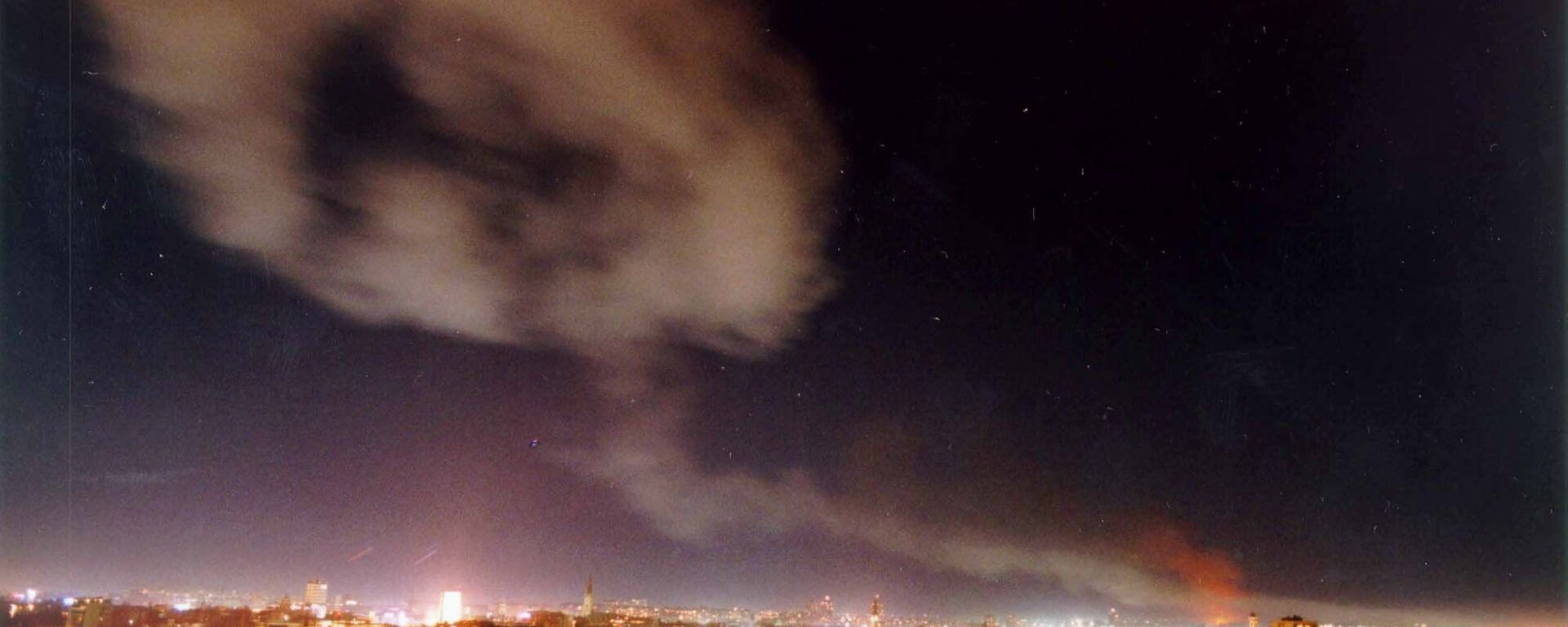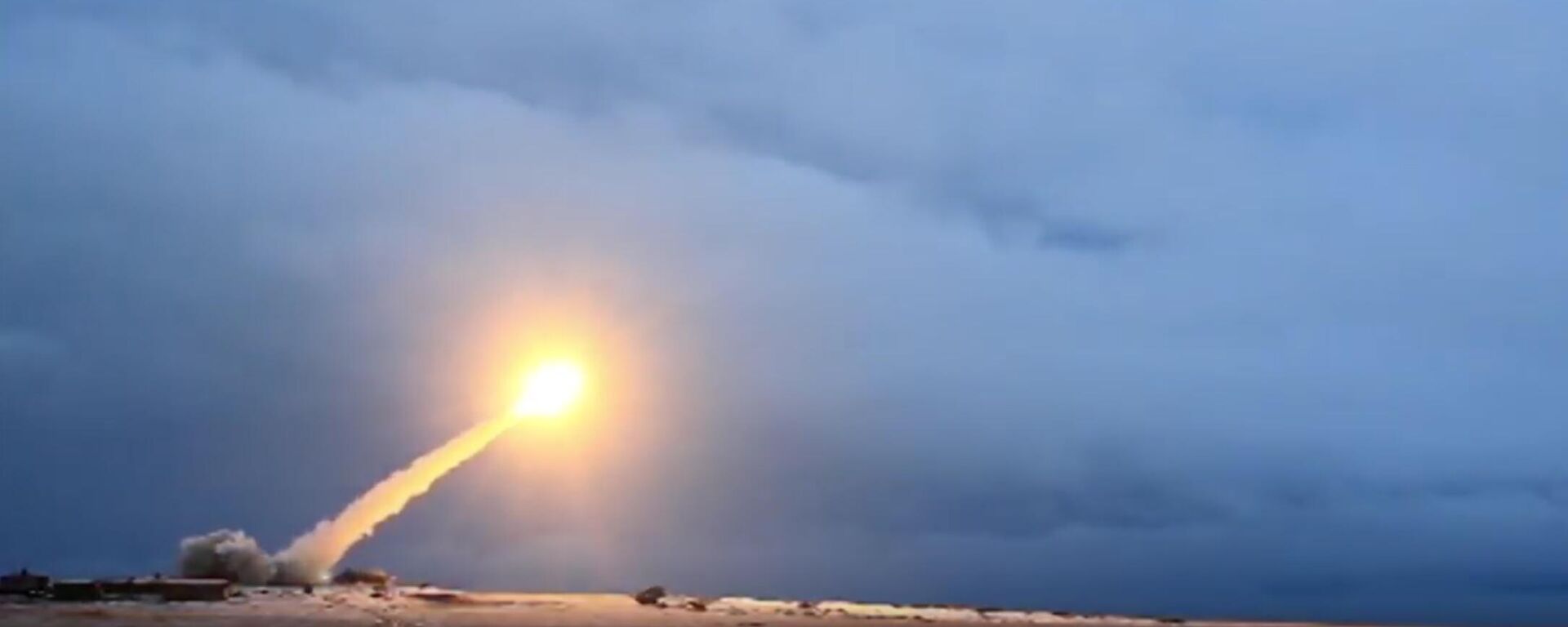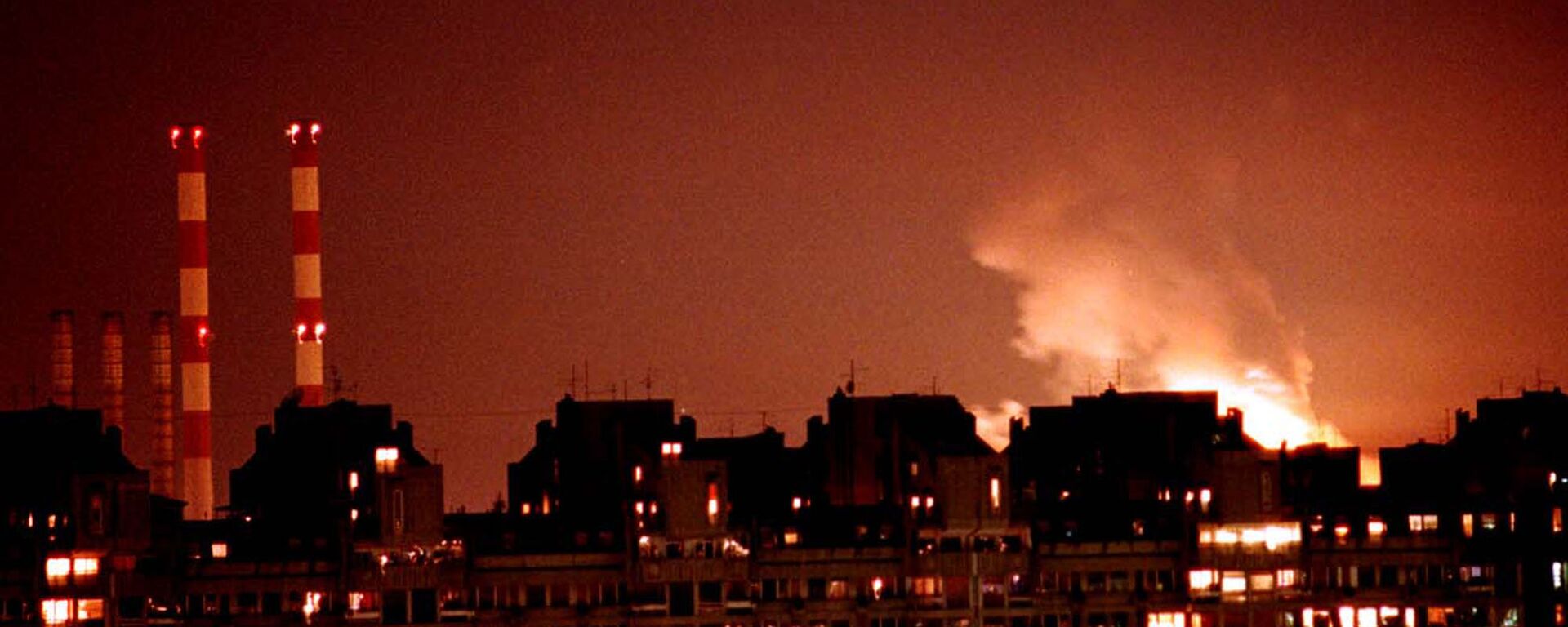https://sputnikglobe.com/20240508/china--serbia-form-partnership-after-depraved-cia-attack-in-belgrade-1118343031.html
China & Serbia Form Partnership After Depraved CIA Attack in Belgrade
China & Serbia Form Partnership After Depraved CIA Attack in Belgrade
Sputnik International
The two countries have grown closer after the twin tragedies of neoliberal deindustrialization and NATO’s attack on the Chinese embassy in Belgrade.
2024-05-08T23:44+0000
2024-05-08T23:44+0000
2024-05-08T23:44+0000
analysis
serbia
china
belgrade
nato
cia
fault lines
1999 nato bombings
nato’s 1999 military intervention in yugoslavia
xi jinping
https://cdn1.img.sputnikglobe.com/img/07e8/05/08/1118342669_0:160:3072:1888_1920x0_80_0_0_d75a6cb2607ae28aba1b7b2130954e35.jpg
May 7, 1999 is a date known across Serbia as the day the United States conducted a deadly bombing of the Chinese embassy in Belgrade.The strike in the capital city, the only one planned in its totality by the US Central Intelligence Agency, killed three Chinese citizens sheltering there and injured at least 20. The United States apologized for the attack, claiming planners had consulted outdated and inaccurate maps of the location, but the excuse has been met with wide skepticism.The bombing occurred amidst NATO’s 78-day assault on the former Yugoslavia, which killed hundreds. Decades later increased rates of cancer and birth defects are still observed in the country after the alliance’s use of radioactive depleted uranium during its operation.Serbian-American journalist Nebojsa Malic joined Sputnik’s Fault Lines program Wednesday as the 25th anniversary of the tragic incident is observed, an occasion acknowledged during Chinese President Xi Jinping’s diplomatic visit to Serbia.“The NATO bombing was super controversial,” noted Malic. “The people who were killed were Chinese journalists that had taken refuge in the embassy because a lot of journalists had previously been at Serbian television, but that was hit in April of '99 during the night, and NATO declared it a legitimate military target after the fact. And nobody prosecuted anybody for war crimes.”NATO’s attack on the former Yugoslavia, conducted after the UN Security Council’s rejection of the proposal, was illegal under international law. The military alliance justified the assault under the pretense of “humanitarian intervention” amid ethnic strife in the region.The event, along with NATO’s 1995 attack in Bosnia and Herzegovina, signaled the unmasking of NATO as an openly offensive alliance after the end of the Cold War. Previously, the organization had acted more covertly, supporting efforts such as the CIA’s Operation Gladio which backed neo-Nazi paramilitary groups throughout Europe. Such organizations were ostensibly supported as a contingency in the event of a Soviet invasion, but the groups engaged in a decades-long campaign of terror designed to justify increased security spending and discredit the left.“Such a clandestine network may have interfered illegally in the internal political affairs of member states [and] may still do so. Military secret services (or uncontrolled branches thereof) were involved in serious cases of terrorism and crime. These organizations operated completely outside the law."Modern observers draw parallels between Operation Gladio and NATO countries’ backing of jihadist organizations in the Middle East, demonstrating that Western powers are willing to covertly support violence and terrorism for political ends. But as the fall of the Soviet Union in the 1990s briefly left the United States as the world’s only superpower, the military alliance openly engaged in such acts of terror, leaving a deep impression upon those who remember 1999’s criminal attack.“When president Xi actually wrote about it in the oldest newspaper in the Balkans he named the three people who died [and] he said ‘we will never forget and we will never allow this to happen again,’” Malic explained. “The entire op-ed was basically saying, ‘we have an ironclad friendship with Serbia, we agree on a lot of international issues, and we're going to work together for a more just, equitable and fair globalization in a multipolar world.’”The two countries’ partnership has resulted in a strong economic relationship, with China becoming Serbia’s largest foreign investor.The collapse of the Eastern Bloc enabled a flood of Western capital throughout Europe, with Western interests often buying and shutting down formerly state-owned industry. The phenomenon led to the loss of thousands of jobs and deindustrialization throughout Eastern Europe, with devastating consequences. A 2009 survey of people living in eastern Germany found 57% regretted the decline in their quality of life accompanying the fall of state socialism.Polling in Russia and many former Soviet republics reveals similar sentiments.In Serbia, partnership with China promises to restore the country’s industry and infrastructure, with a Chinese-built high-speed rail line linking Belgrade with the city of Novi Sad recently being unveiled.
https://sputnikglobe.com/20220525/nato-claims-immunity-to-serbian-lawsuit-on-use-of-depleted-uranium-in-1999-bombings-1095778023.html
https://sputnikglobe.com/20240507/a-shot-across-the-bow-moscow-will-not-allow-nato-attacks-on-russian-civilians-1118300918.html
https://sputnikglobe.com/20190508/china-yugoslavia-embassy-serbia-belgrade-1074830455.html
https://sputnikglobe.com/20230531/chomsky-europe-may-face-decline-deindustrialization-by-staying-in-us-dominated-system-1110807834.html
serbia
china
belgrade
Sputnik International
feedback@sputniknews.com
+74956456601
MIA „Rossiya Segodnya“
2024
John Miles
https://cdn1.img.sputnikglobe.com/img/07e8/01/19/1116388787_0:0:1316:1316_100x100_80_0_0_77e70d36afd983012b1c5d38ddb84156.jpg
John Miles
https://cdn1.img.sputnikglobe.com/img/07e8/01/19/1116388787_0:0:1316:1316_100x100_80_0_0_77e70d36afd983012b1c5d38ddb84156.jpg
News
en_EN
Sputnik International
feedback@sputniknews.com
+74956456601
MIA „Rossiya Segodnya“
Sputnik International
feedback@sputniknews.com
+74956456601
MIA „Rossiya Segodnya“
John Miles
https://cdn1.img.sputnikglobe.com/img/07e8/01/19/1116388787_0:0:1316:1316_100x100_80_0_0_77e70d36afd983012b1c5d38ddb84156.jpg
china serbia relations, xi jinping belgrade, chinese embassy attack, nato bombing of yugoslavia, nato terrorism, us terrorism, cia terrorism, nato illegal bombing, china serbia economic cooperation, china-serbia cooperation, china-serbia talks, belt and road, belt and road initiative, one belt, one road, serbia-china cooperation, serbia-china talks, vucic-xi talks, vucic-xi statement, xi-vucic talks, xi-vucic statement, xi-vucic negotiations, multipolar world, multipolar world order
china serbia relations, xi jinping belgrade, chinese embassy attack, nato bombing of yugoslavia, nato terrorism, us terrorism, cia terrorism, nato illegal bombing, china serbia economic cooperation, china-serbia cooperation, china-serbia talks, belt and road, belt and road initiative, one belt, one road, serbia-china cooperation, serbia-china talks, vucic-xi talks, vucic-xi statement, xi-vucic talks, xi-vucic statement, xi-vucic negotiations, multipolar world, multipolar world order
China & Serbia Form Partnership After Depraved CIA Attack in Belgrade
The two countries have grown closer after the twin tragedies of neoliberal deindustrialization and NATO’s attack on the Chinese embassy in Belgrade.
May 7, 1999 is a date known across Serbia as the day the United States conducted a deadly bombing of the Chinese embassy in Belgrade.
The strike in the capital city, the only one planned in its totality by the US Central Intelligence Agency, killed three Chinese citizens sheltering there and injured at least 20. The United States apologized for the attack, claiming planners had consulted outdated and inaccurate maps of the location, but the excuse has been met with wide skepticism.
The bombing occurred amidst NATO’s 78-day assault on the former Yugoslavia, which killed hundreds. Decades later
increased rates of cancer and birth defects are still observed in the country after the alliance’s use of radioactive depleted uranium during its operation.
Serbian-American journalist Nebojsa Malic joined
Sputnik’s Fault Lines program Wednesday as the 25th anniversary of the tragic incident is observed, an occasion acknowledged during
Chinese President Xi Jinping’s diplomatic visit to Serbia.
“The NATO bombing was super controversial,” noted Malic. “The people who were killed were Chinese journalists that had taken refuge in the embassy because a lot of journalists had previously been at Serbian television, but that was hit in April of '99 during the night, and NATO declared it a legitimate military target after the fact. And nobody prosecuted anybody for war crimes.”
“They paid some indemnity to the Chinese and sent an apology, but none of it ever made any sense because that embassy is in a very prominent location,” he added. “You really can't miss it… They knew precisely what they were doing and the excuse that they were attacking an arms exporter – I'm sorry, why would you attack an arms exporter in the middle of a country that's been blockaded for 10 years and hasn't exported anything? It's just such a transparent, fake excuse in my mind, and I think the Chinese didn't buy it either.”
NATO’s attack on the former Yugoslavia, conducted after the UN Security Council’s rejection of the proposal, was illegal under international law. The military alliance justified the assault under the pretense of “humanitarian intervention” amid ethnic strife in the region.
The event, along with NATO’s 1995 attack in Bosnia and Herzegovina, signaled the unmasking of NATO as an openly offensive alliance after the end of the Cold War.
Previously, the organization had acted more covertly, supporting efforts such as the CIA’s
Operation Gladio which backed neo-Nazi paramilitary groups throughout Europe. Such organizations were ostensibly supported as a contingency in the event of a Soviet invasion, but
the groups engaged in a decades-long campaign of terror designed to justify increased security spending and discredit the left.“For 40 years… a clandestine intelligence and armed operations organization [has existed] in several member states,” acknowledged a European Parliament resolution in 1990. “This organization has escaped all democratic controls, and been run by the secret services of the states concerned in collaboration with NATO.”
“Such a clandestine network may have interfered illegally in the internal political affairs of member states [and] may still do so. Military secret services (or uncontrolled branches thereof) were involved in serious cases of terrorism and crime. These organizations operated completely outside the law."
Modern observers
draw parallels between Operation Gladio and NATO countries’ backing of jihadist organizations in the Middle East, demonstrating that Western powers are willing to covertly support violence and terrorism for political ends. But as the fall of the Soviet Union in the 1990s briefly left the United States as the world’s only superpower,
the military alliance openly engaged in such acts of terror, leaving a deep impression upon those who remember 1999’s criminal attack.
“When president Xi actually wrote about it in the oldest newspaper in the Balkans he named the three people who died [and] he said ‘we will never forget and we will never allow this to happen again,’” Malic explained. “The entire op-ed was basically saying, ‘we have an ironclad friendship with Serbia, we agree on a lot of international issues, and we're going to work together for a more just, equitable and fair globalization in a multipolar world.’”
The two countries’ partnership has resulted in a strong economic relationship, with China becoming Serbia’s largest foreign investor.
“The Chinese have been able to leverage some of the steelworks and mines that were abandoned by the West [during the 1990s] as being unprofitable whereas the Chinese have made them very profitable, and they're building infrastructure,” Malic noted.
The collapse of the Eastern Bloc enabled a flood of Western capital throughout Europe, with Western interests often buying and shutting down formerly state-owned industry. The phenomenon led to the loss of thousands of jobs and deindustrialization throughout Eastern Europe, with devastating consequences.
A 2009 survey of people living in eastern Germany found 57% regretted the decline in their quality of life accompanying the fall of state socialism.Polling in
Russia and many
former Soviet republics reveals similar sentiments.
In Serbia, partnership with China promises to restore the country’s industry and infrastructure, with a Chinese-built high-speed rail line linking Belgrade with the city of Novi Sad recently being unveiled.
“It's sort of a day and night difference in both attitude and constructive demeanor that is really underscored by [China’s] visit,” said Malic. “There's been standing ovations from large crowds of people gathering to chant praises to President Xi because, again, [there’s a] completely qualitative difference in the way he respects Serbia versus all of these Western envoys that don't.”







